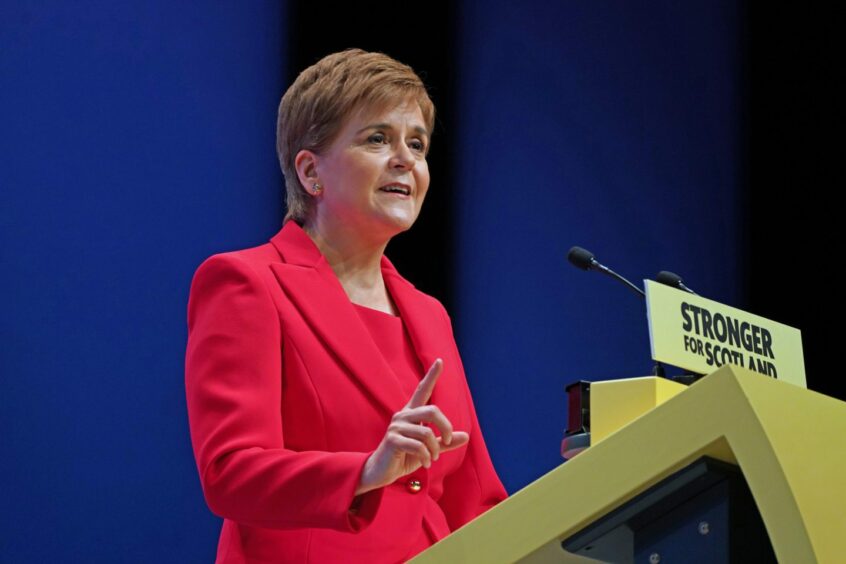
A leading petroeconomist has cautioned the Scottish Government against relying on forward oil prices when forecasting its future spend.
Professor Alex Kemp of Aberdeen University says the metric is “not a particularly good measure” of what oil will be trading at in two or three years’ time.
“If I were the Scottish Government, I would be thinking about what the revenue might be under different conditions in a decade’s time or so,” he said.
“That includes the impact of production from new fields, decommissioning spend, and what oil and gas prices might be.”
Making the most of Scotland’s remaining reserves
A key sell of First Minister Nicola Sturgeon’s recently published economic prospectus for an independent Scotland is a new £20 billion investment fund, sourced primarily from North Sea oil and gas revenues.
It will “accelerate the transition to net zero, build resilient communities, and help kick-start the sustainable economic growth so important for the newly independent nation”, Holyrood said.
As of yet it is unclear what oil price the Scottish Government is banking on to raise the money needed for the investment fund.
Professor Kemp warned forecasting revenue based on fluctuating markets is “very difficult”, and advised against calculations based on a “one line projection”.
He said: “I expect that projections will come out in due course and they will use a one line based on the forward price. But of course, forward oil prices can turn out to be way out.
“We’ve done exercises on that in the past and it’s quite clear that it is not a particularly good measure of what the price a year or two ahead will be.”
At the time of writing, Brent crude was trading at just over $90 a barrel, but it has oscillated dramatically in recent years.
Taking cues from abroad
An investment fund sourced from oil revenue is not a novel idea, and many petroleum producing countries around the world have similar models in place.
Worth north of £1 trillion, Norway’s sovereign wealth fund – which on average holds 1.3% of all of the world’s listed companies – is probably the most famous.

Cash from the reserve is used to smooth over economic downturns, while also ensuring proceeds from the country’s oil industry benefit future generations.
A similar model has previously been mooted as good way for the Scottish Government to use the £700m it received from the Scotwind leasing round.
Scot Gov likely to be ‘very active’ in managing fund
Norway’s pot of gold is overseen by independent trustees, but Professor Kemp expects the Scottish Government would be “more proactive” in managing its fund, were it set up.
Should that turn out to be the case, he says ministers should “clearly acknowledge” the opportunity cost of splashing the cash, rather than using it for long-term investment.

He said: “There is a bit of a danger that a big proportion of the funds will be used for immediate problems. All the thinking on the design of oil funds says you should be very wary of that.
“It’s understood that if you have a big macroeconomic problem, let’s say in this case major fuel poverty, addressing that is reasonable. Tut not entirely at the cost investments to produce income for the next generation.”
Recommended for you


 © Andrew Milligan/PA Wire
© Andrew Milligan/PA Wire